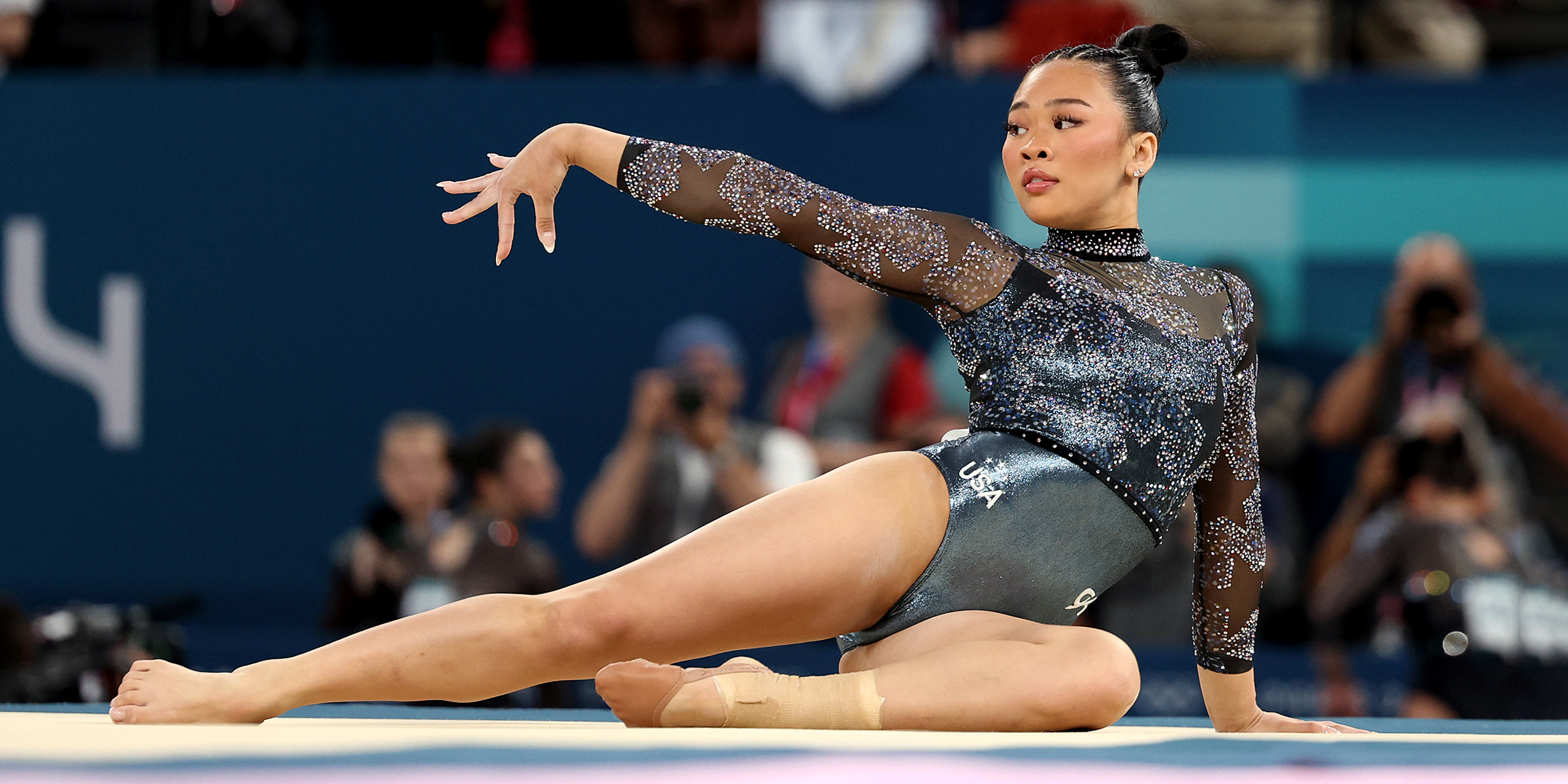
Suni Lee Faced Backlash for Showing Her Boyfriend – Personal Struggles of the Olympic Gymnast
- Suni Lee has made a name for herself as an incredible gymnast. However, the Olympic gold medalist has had to overcome many challenges in her personal life.
- After making her relationship with a fellow athlete public, the gymnast encountered a storm of racist backlash, primarily from within her own community.
- Suni Lee also faced uncertainty about her future following a health scare involving a rare disease.
Suni Lee, a two-time Olympian, has achieved remarkable success in gymnastics at a young age, drawing comparisons to Simone Biles and Shannon Miller. However, despite her professional accomplishments, her personal life has been marked by significant challenges.
In 2021, she made her relationship with her African-American boyfriend public. The Olympian has since opened up about how she received "so much hate" over her interracial relationship.
Suni also revealed astonishing details about her battle with two forms of rare and incurable kidney disease that momentarily halted her career.
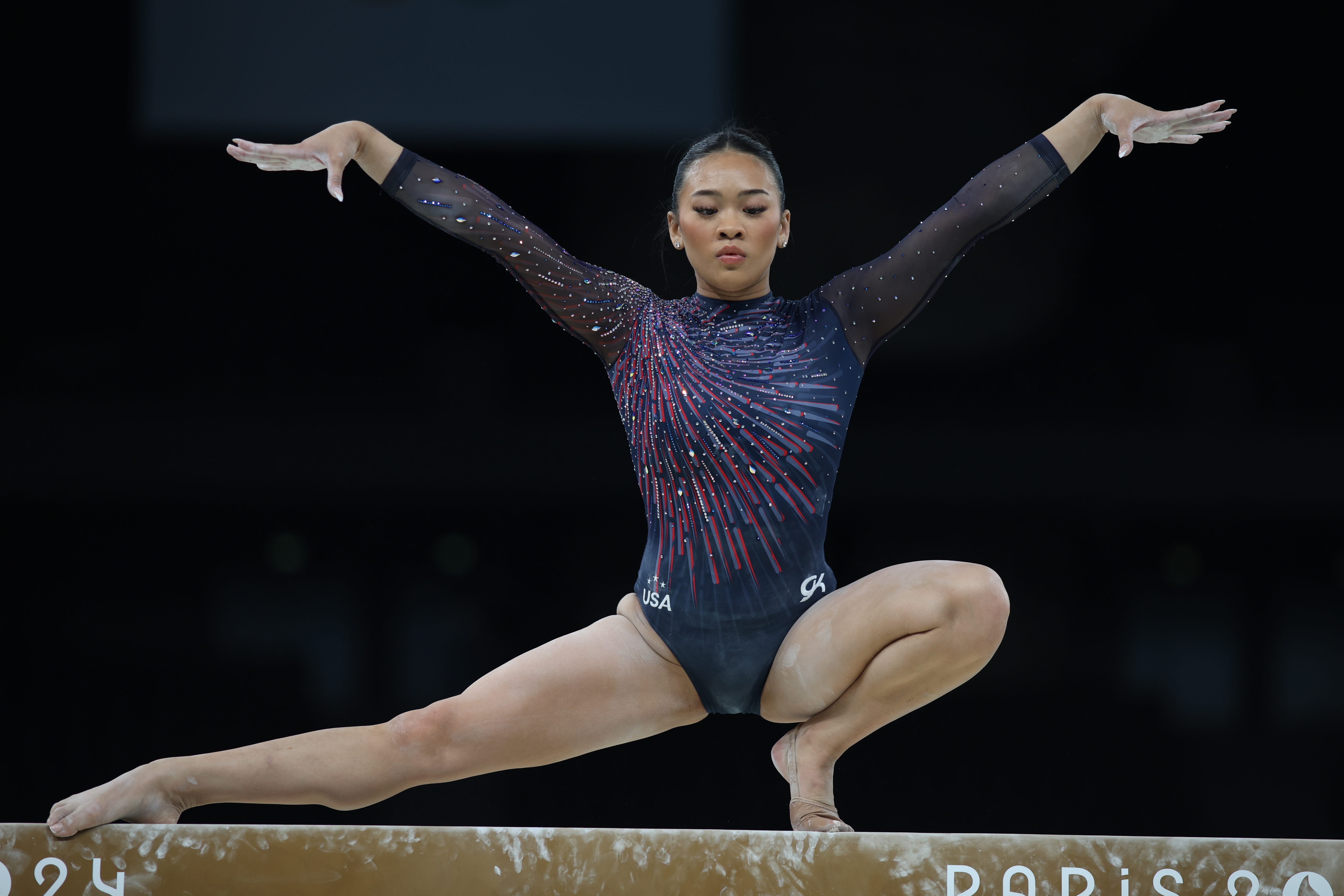
Suni Lee performing her balance beam routine during Artistic Gymnastics podium training, in preparation for the Paris 2024 Summer Olympic Games on July 25, 2024, in Paris, France. | Source: Getty Images
Suni Lee's Journey and Her Family's Sacrifices
Suni's story begins in St. Paul, Minnesota, where she was born to John Lee and Yeev Thoj. of Hmong descent. However, Suni's path to becoming an Olympic gymnast started later than most.
She was six when she began taking gymnastics lessons, an age considered old in the gymnastics world, where many start as early as 18 months or around three or four years old. Despite the late start, Suni had already been doing her own form of gymnastics.
"I used to flip around a lot and I was super active," she recalled. Her parents remember how Suni would tumble around the house and the backyard. "People kept asking us, 'Is she in gymnastics?'" Yeev said. It was clear that Suni had a natural talent and energy for the sport.
The turning point came when a family friend introduced them to Puner Koy, a coach at Midwest Gymnastics. "We just set up an appointment to go meet up with Puner and they tested her a little bit, and then he said, 'OK, we'll just keep her,'" Yeev explained.
From that moment, Suni began training at Midwest under the guidance of coaches Koy, Alison Lim, and her head coach, Jess Graba. However, the transition from living room acrobatics to a structured training program came with its challenges.
"It's not quite as natural since she started so late and she had a lot of crazy schoolyard stuff when she came in," Jess mentioned when Suni was 14. "You kind of had to retrain her a little bit. But at the same time, she's so talented she's able to pick up on it," Jess continued.
Despite these initial hurdles, Suni's progress was remarkable and swift. At seven, she won the all-around at a state meet, only her second competition. By eight, she had advanced three levels in a single year.
In the USA Gymnastics Junior Olympic program, there are ten levels, each requiring mastery of specific skills before advancing. Beyond level ten is the elite program, where gymnasts compete at world championships and the Olympics.
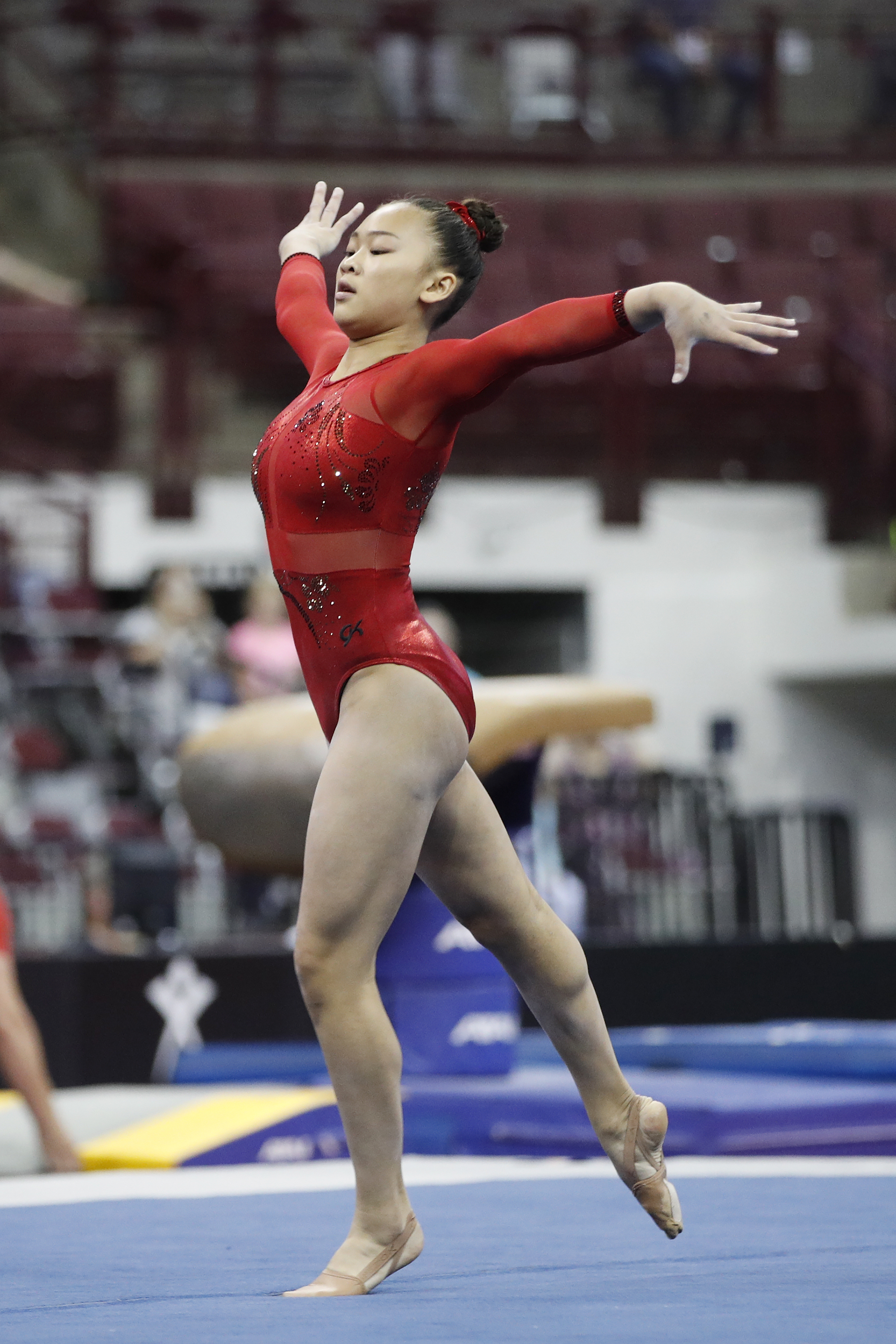
Suni Lee competing during the 2018 U.S. Classic Gymnastics Junior event on July 28, 2018, in Columbus, Ohio. | Source: Getty Images
Suni qualified for elite status just as she turned 11 in 2014. By 14, she was already among the best gymnasts in the country. However, achieving this level of success in gymnastics is not without significant financial burdens.
Elite gymnastics training is notoriously expensive. Between gym fees, coaching, travel expenses, leotards, and other costs, the expenses quickly add up.
According to a 2017 Forbes analysis, the average annual cost of raising an Olympic-level gymnast is $15,000. For those on the national team, USA Gymnastics covers some costs, but this support is not always guaranteed and varies based on available funding.
Families still need to cover their travel, lodging, and time away from work. For Suni's parents, this meant a daily juggling act between their jobs and Suni's demanding schedule.
John worked as a service engineer at Cummins, and Yeev was employed in the case management department at UCare. Balancing their jobs with Suni's training was challenging, especially with five other children, including two older step-siblings, to care for.
Suni's coaches frequently covered additional costs, paying their own way to developmental or training camps and waiving gym fees when necessary. Turning away a gymnast of Suni's potential was never an option.
"We see potential in her. That's why we spend that kind of money," Suni's mother shared. The Lee family's extended network also rallied to support Suni. Fundraisers became an annual event.
John organized these at local bars or nightclubs, selling tables for the night. Sometimes, Suni would make an appearance, singing for the crowd and signing autographs. The family also hosted "pho days," preparing large batches of the noodle soup and accepting donations in exchange for a bowl.
John humorously noted the financial sacrifices, saying that if Suni wasn't in gymnastics, he could have bought a new car or a boat with that kind of money. "But, you know, sacrifices," he said, without a hint of regret.
Suni deeply appreciated her family's dedication. "It feels good for them to be supporting me because I love gymnastics so much," a 14-year-old Suni expressed. Her parents' hard work and sacrifices paid off, as Suni was selected to represent the USA at the 2020 Tokyo Olympics, a testament to her talent and their enduring support.

Suni Lee posing for a portrait during the Team USA Tokyo 2020 Olympic shoot on November 22, 2019, in West Hollywood, California. | Source: Getty Images
Facing Racism: The Backlash Against Suni Lee's Interracial Relationship
Ahead of her incredible run at the 2024 Paris Olympics, Suni went Instagram-official with her boyfriend, fellow athlete Jaylin, in a post that has since been deleted.
Jaylin, a proud player on the USC football team and part of the House of Victory, a Premier Collective for USC Student-Athletes, had nearly 50,000 followers on Instagram at the time of writing.
Suni made their relationship public in December 2021 by sharing a series of photos of herself cuddling the college athlete, and captioning the images with a simple heart emoji.
While many social media users warmly welcomed the young couple, Suni also faced a barrage of hateful comments. Moments after sharing her loving relationship, trolls voiced their disapproval.
Most of the backlash came from the Hmong-American community, which had celebrated Suni as the first Hmong-American gymnast at the Tokyo Olympics. In response to the backlash, Suni reposted a supportive TikTok video. Alixvangphom, a TikTok user, created a reaction video addressing the criticism from the Hmong-American community.
"I know that Sunisa will be judged by certain eyes in the Hmong American Community because her man is Black. LOVE is LOVE, no matter what race or gender you are. Keep doing you QUEEN," alixvangphom captioned the video.
Suni expressed her gratitude in the comments section, saying, "This makes me so happy. I've received so much hate. They support me when it's beneficial for them, never when it comes to my happiness. Thank you!"
Support for Jaylin and Suni's interracial relationship also poured in from other social media users. "This is so sad," one person tweeted in reaction to the news of the racial backlash. Another shared, "How sad is this, wow."
A third user commented, "No one can tell you who to love. The heart knows." A fourth added, "People who judge others based on their skin show how insecure they are in their own." TMZ later reported that Suni shared that haters would continue to be banned from commenting on pics of her boyfriend.
This wasn't Suni's first encounter with racism. In November 2021, she recounted an incident to PopSugar where she was allegedly pepper-sprayed in a racist drive-by attack in Los Angeles.
Suni explained that a group of people in a car yelled racist slurs at her and her friends — all of Asian heritage — telling them to "go back to where they came from." One of the passengers then allegedly sprayed Suni's arm with pepper spray.
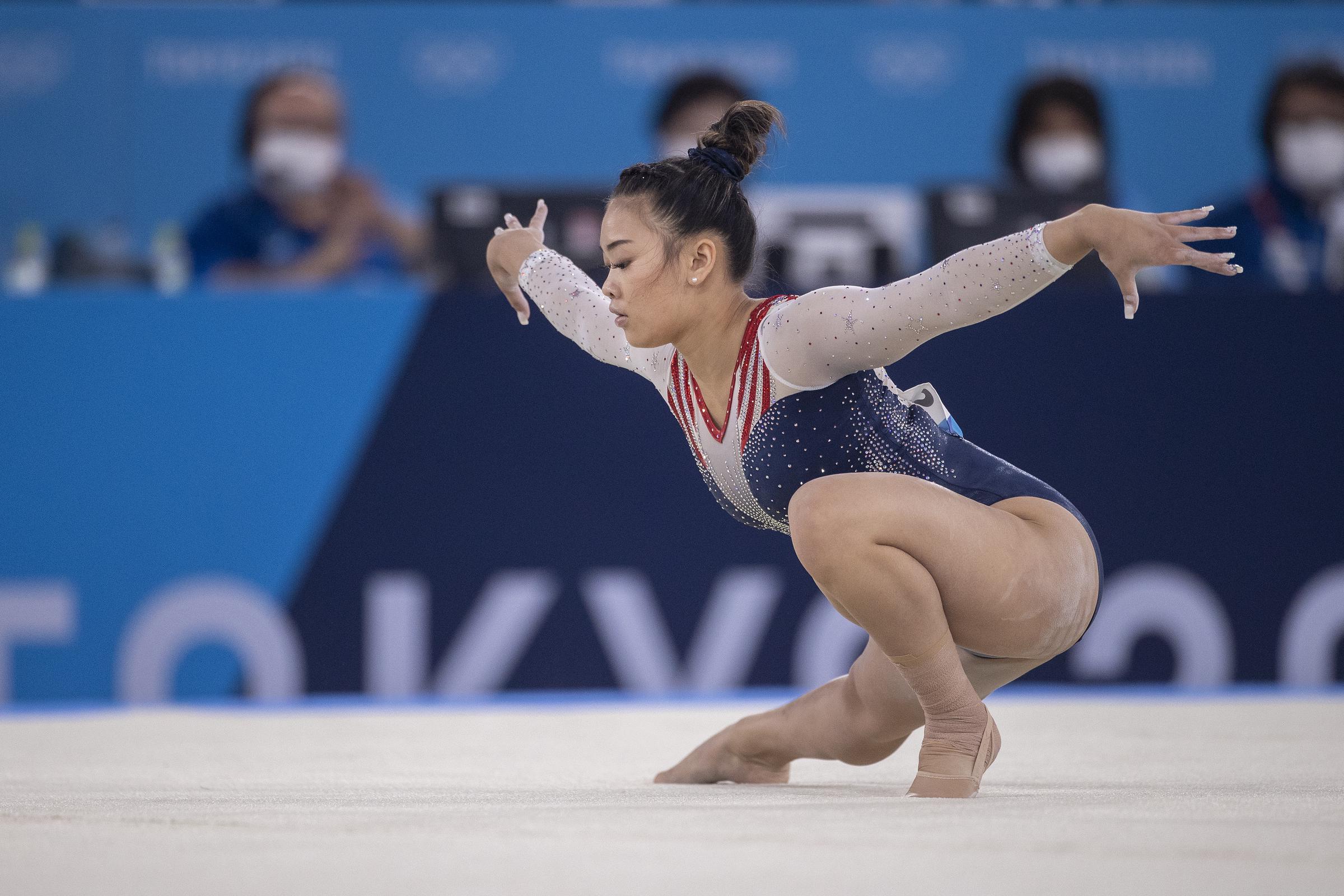
Suni Lee during her floor routine in the all-around final during the Tokyo 2020 Summer Olympic Games on July 29, 2021, in Tokyo, Japan. | Source: Getty Images
At that moment, Suni felt intense anger but was powerless to act as the attackers sped away. She reflected on how difficult it was to maintain her reputation and avoid trouble, choosing not to retaliate despite doing nothing to provoke the incident.
Suni has remained outspoken about her role as a barrier-breaker, especially for the Hmong community. "Just [to] be an inspiration to other Hmong people [means] a lot to me too," she said.
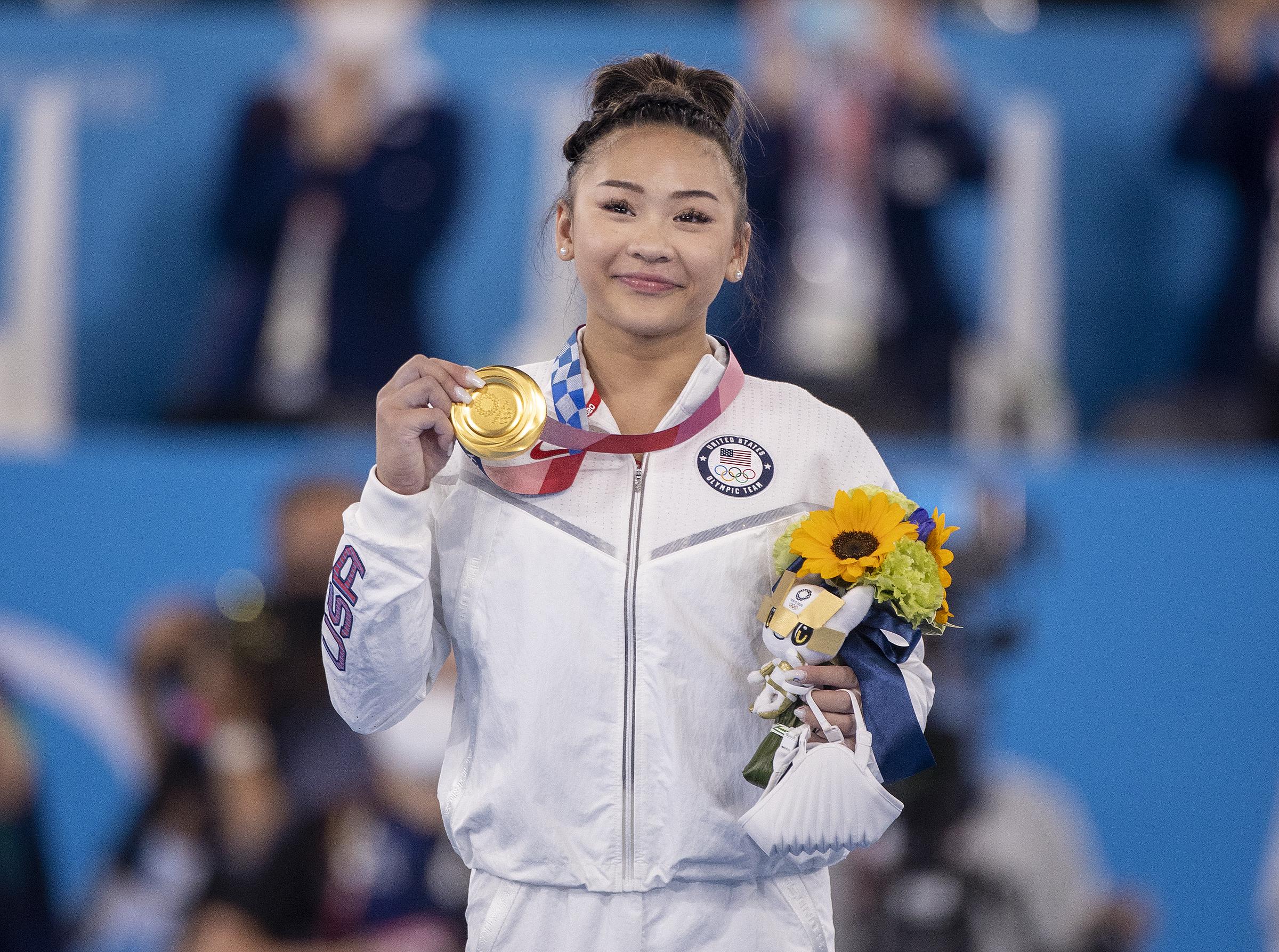
Suni Lee on the podium with her gold medal after winning the all-around final during the Tokyo 2020 Summer Olympic Games on July 29, 2021, in Tokyo, Japan. | Source: Getty Images
Health Challenges and Family Support: Suni Lee's Return to the Olympics
Despite her previous trials and tribulations, Suni has persevered. Following an impressive performance by Team USA at the July 28 qualifying rounds, Suni earned her spot in the finals.
She will be representing the country on bars, beam, floor, and the all-around competition for the second time. Less than a year after her significant victory in Tokyo, Suni announced her intention to compete in the 2024 Paris Olympics.
However, her path to the Paris Olympics became more complicated when she was diagnosed with a rare and incurable kidney disease in 2023. In February 2023, Suni began experiencing abnormal swelling in her ankles, face, hands, and legs.
Initially suspecting an allergic reaction, her doctors ruled it out when the swelling persisted after two weeks, accompanied by a sudden weight gain of around 40 pounds. After several rounds of tests, they discovered that she had not one, but two forms of kidney disease.
With the discoveries regarding her health, Suni faced an uncertain future in gymnastics. While chatting with E! News in March 2024, Suni revealed that her kidney disease forced her to take a break for a few months, which significantly weakened her.
Once she received medical clearance to resume training, she had to modify her workouts and incorporate physical therapy. At the Team USA Media Summit in April 2024, Suni mentioned that her coaches had never dealt with an athlete facing two forms of kidney disease before.
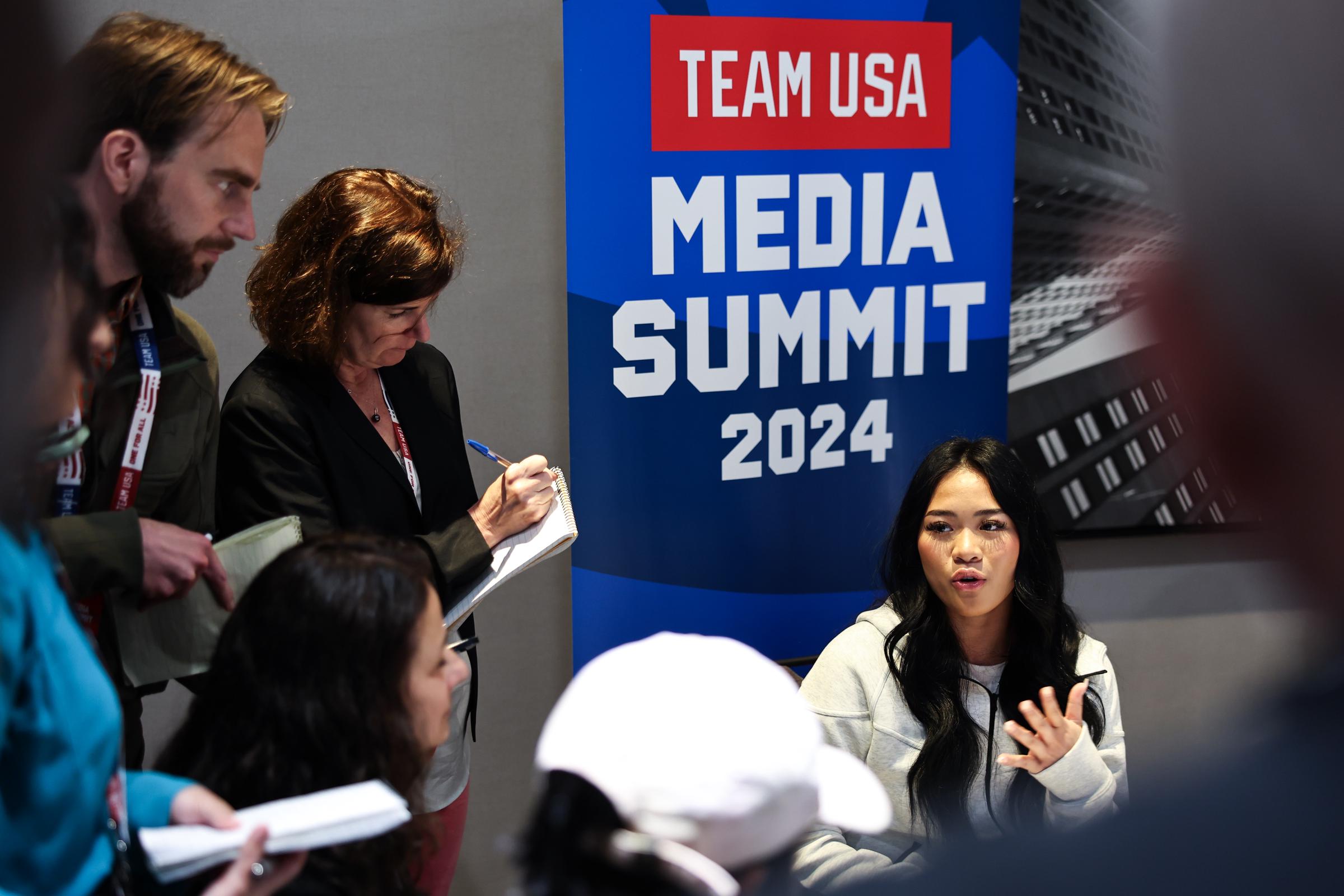
Suni Lee speaking to the media during the Team USA Media Summit on April 15, 2024, in New York. | Source: Getty Images
She admitted that she didn't know any other gymnasts who had experienced this. This made her situation a learning process for everyone involved, requiring them to take it one day at a time. However, Suni's determination never wavered.
The gymnast eventually received the green light from her doctors to reduce the amount of medication she was on. This ignited a fire in Suni to aim for a spot at the 2024 Paris Olympics.
With an unyielding spirit, Suni returned to training, aiming to secure her place on Team USA once again. At the Team USA Media Summit, she said her condition was in remission and that she was almost back to her normal training schedule.
"We didn't think I would be here. So getting through all of those events and...everything that we had to go through this week to get to where we are right now, it was just such a hard, incredible journey," Suni reflected on her comeback.
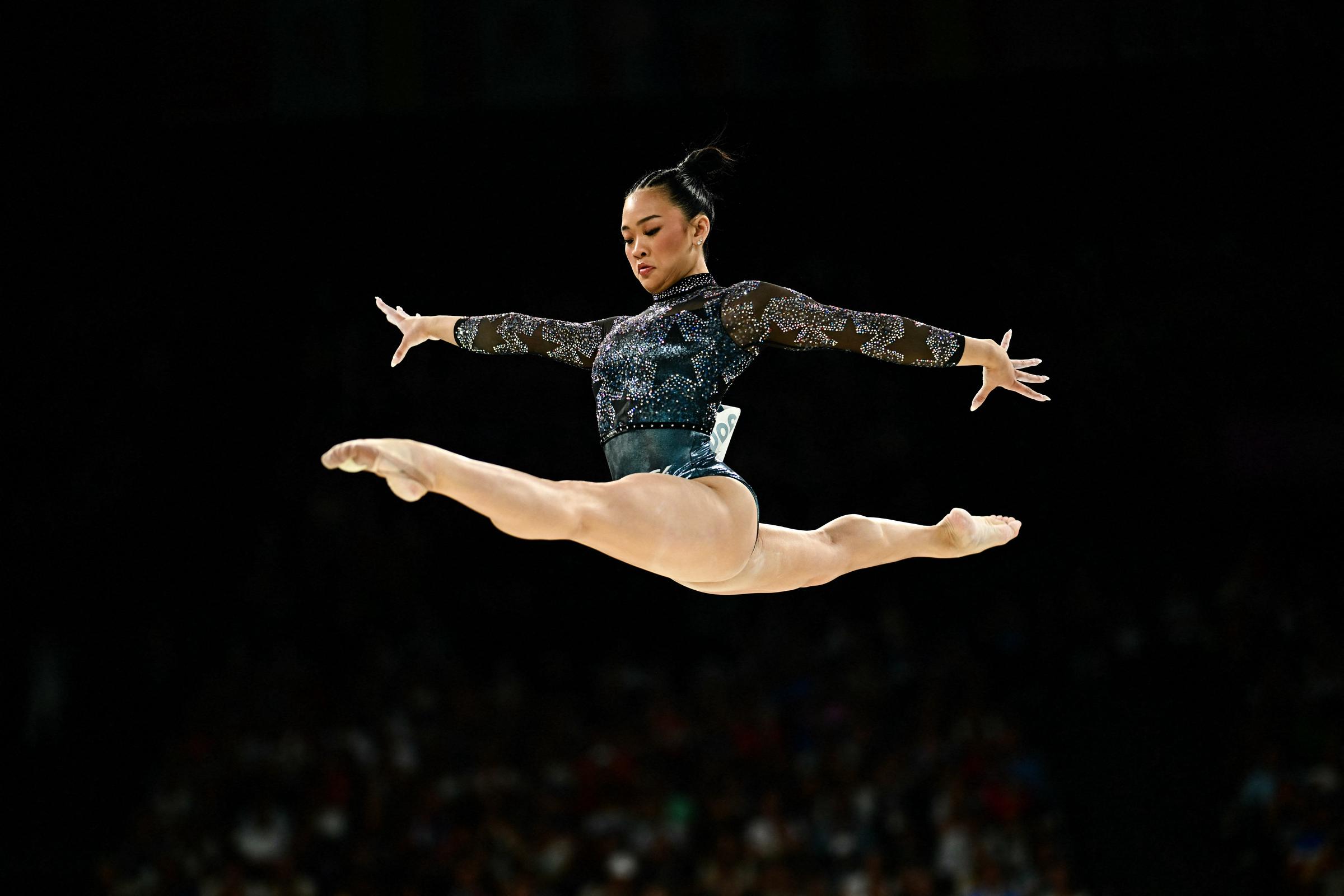
Suni Lee competing in the balance beam event of the artistic gymnastics women's qualification during the Paris 2024 Olympic Games on July 28, 2024, in France. | Source: Getty Images
Standing beside her every step of the way was her father. Unfortunately, on August 4, 2019, just before Suni left for the national championships, John suffered a severe accident.
He fell off a ladder while helping a friend trim a tree, resulting in a spinal cord injury that initially paralyzed him from the chest down. He also broke his right wrist and fractured several ribs.
Suni's father recalled waking up in the hospital and being told he was unable to use his legs. Suni considered skipping regionals that year. However, her father convinced her to go. Despite his condition, John remained his daughter's biggest supporter.
During the regionals, where Suni finished second to Simone Biles in the all-around competition, the doting father called his daughter from his hospital bed in the ICU.
In an emotional speech, John told his daughter that it did not matter where she finished, so long as she did her best. To him, she was already number one. In 2021, John was able to watch Suni compete at the U.S. gymnastics championships in person for the first time following his accident.
"It means a lot," John said. His daughter immediately made the trip worthwhile, performing a gorgeous uneven bars routine. Following John's tragic accident, Suni began sharing their FaceTime conversations, talking publicly about how her dad's words calmed her pre-meet jitters.
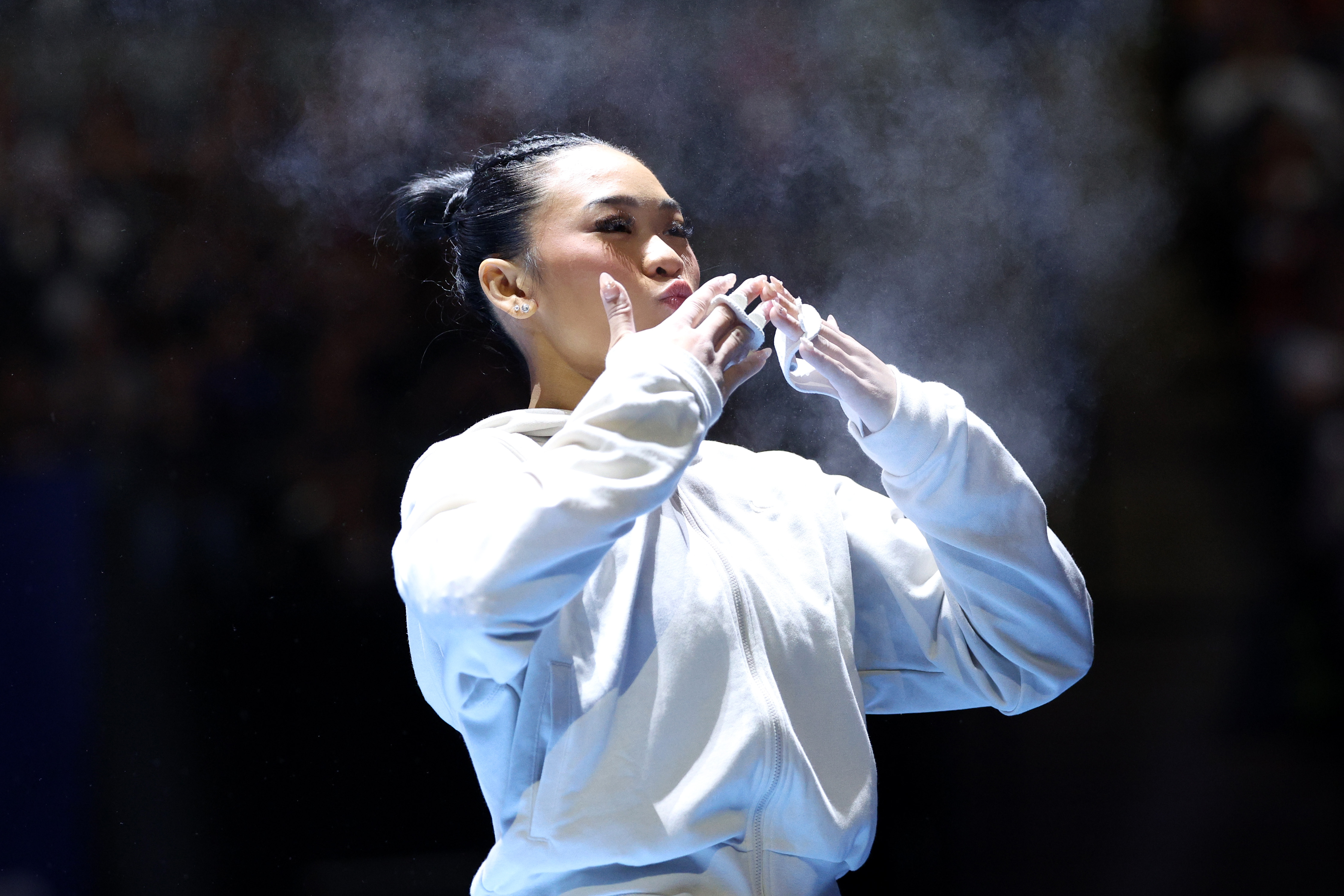
Suni Lee on day four of the 2024 U.S. Olympic Team Gymnastics Trials on June 30, 2024, in Minneapolis, Minnesota. | Source: Getty Images
John's pep talks have since become something of a legend within elite gymnastics circles. "I try to be confident for her, but inside there is nerves (sic)," John, who revealed during an interview that he still had the balancing beam he built for Suni when she was younger, shared.
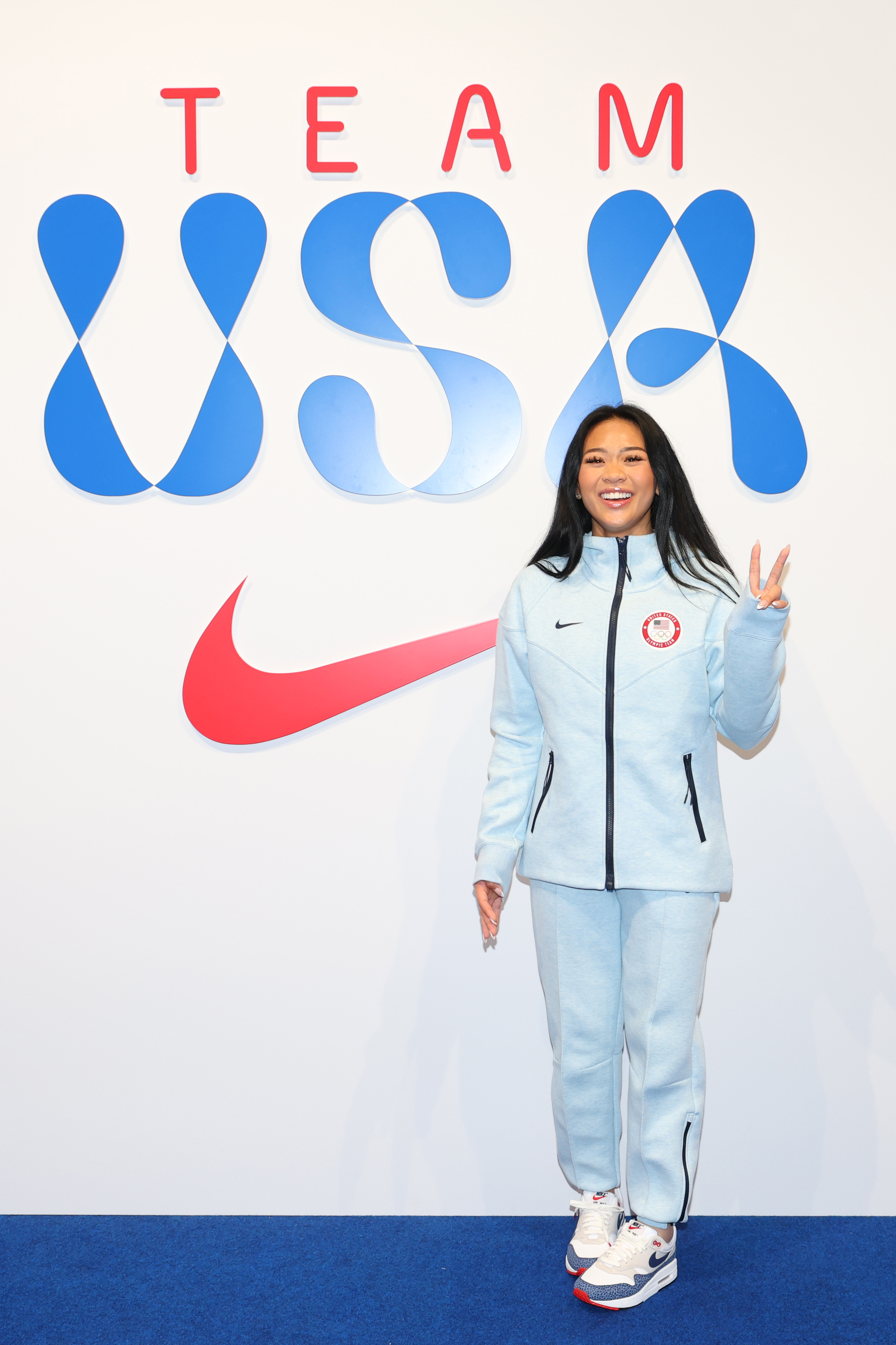
Suni Lee at the Team USA Welcome Experience A head of Paris 2024 event on July 22, 2024, in Paris, France. | Source: Getty Images
Suni's journey from backyard flips to Olympic champion is a testament to her resilience and determination. Despite facing racism and battling a rare kidney disease, she has continued to shine in gymnastics.
Her father's support and her own strong spirit have helped her through tough times. As she competes in the 2024 Paris Olympics, Suni proves that with love and perseverance, any challenge can be overcome.
